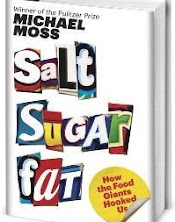In this provocatively titled book, Fairman discusses the word "fuck" in great detail. He discusses the power of the word, much of which derives from its status as a taboo word and the object of word fetish. He discusses the word's etymology, linguistic and psycholinguistic contexts, its historical uses as a referent to sex and in other ways (as political speech, for example), and its inconsistent judicial status in American jurisprudence. His primary purpose in doing this is to encourage all who care about freedom of thought and speech to protect the use of all language in the formulation and transmission of ideas. Fairman says,
Whether you shout it in the street or whisper it in the bedroom, say it deliberately as a political protest or accidentally let it slip out, make a single fleeting reference or sing an expletive-laden rant, intend to be funny or downright foul, if you say "fuck," someone wants to silence you. We shouldn't passively watch as tiny coalitions with a webpage and a word fetish take some of our words away. When it's the government trying to cleanse your language, you should really worry. We shouldn't tolerate any part of our representative government mucking around in our words....Fairman's historical discussion of "fuck" begins with the observation that the word has systematically been excluded from most English dictionaries. He calls this "a deliberate attempt to cleanse the language of this word" (p.37). He also alerts readers that some of the urban legends about the origin of the word as an acronym (For Unlawful Carnal Knowledge and Fornication Under Consent of the King) are false, and explains why this is so. Notwithstanding concerted attempts to wipe the word "fuck" clean out of the English language, the word has been resilient. He explains the reasons for this in a chapter devoted to linguistic and psycholinguistic analyses of the word. One reason for its longevity is its ability to be used in many ways - as a verb (in this case, often with a sexual meaning), an adverb or adjective (these uses are not usually sexual), as a noun (this could be a sexual meaning, but often is not), or simply as an interjection.
At issue isn't just protection for some entertainer's potty mouth. Words are ideas. If the government can control the words we say, it can also control what we think. Ultimately, my concern is for the preservation of our most basic liberty - a freedom of the mind (p.10).
One of the evidences of the power of taboo, and the power of fuck as the object of both taboo and fetish, is the use of euphemisms (f-word, f*ck, etc.) in place of the word itself, a practice that Fairman derides as "silly" (p.57). "Fuck" as the object of taboo is in play when its use is avoided (by some) and when its use is deliberately intended (by others) to shock and/or offend; "fuck" as the object of fetish is in play when people have extremely negative emotional reactions to the term and seek to prohibit its use in all circumstances (pp.59-60). Fairman discusses examples of the fuck taboos and fetishes in TV, music, workplaces, classrooms and even courtrooms.
Since Fairman is a lawyer and professor of law, it's not surprising that much of his book deals with legal cases surrounding various uses of the word "fuck." The body of work devoted to legal parsings of this humble little word is quite large, varied and interesting. Not surprisingly, given the seemingly schizophrenic character of American society, the legal status of the word "fuck" is inconsistent, and, consequently, unclear. Sometimes it's obscenity, sometimes it's not. Sometimes it's protected speech, sometimes it's not. Fairman contends that this state of uncertainty is not healthy for civic discourse. He bluntly concludes,
The future of fuck is clear. If we continue to allow the state to pick and choose the words we can use and the context in which we can use them, freedom is at stake.... Once that word is extinguished, gone are its literally hundreds of uses, hence hundreds of ideas.... Now you might think I'm an alarmist and that the First Amendment stands to prevent precisely what I foreshadow. But before you discount my fears, please remember: Fuck is being fucked in the shadow of the First Amendment. Neither a Commission nor a court nor a cop should have power over our ideas. To ensure freedom of the mind, fuck must be set free (p. 191).Fairman's book is well-written, easily grasped and a worthwhile read for anyone with any interest at all in freedom of speech, freedom of conscience and freedom of thought. As you've no doubt gathered by now, the book's provocative title was chosen deliberately, precisely because the word "fuck" is tremendously evocative and powerful. It was also chosen deliberately because it is a marginalized (perhaps even endangered) word. When words are marginalized and endangered, the marginalization and endangerment of ideas is not far behind. Freethinkers and freedom lovers can never, in good conscience, allow the intolerance, marginalization and extinction of words and ideas to go unchallenged. I, for one, am indebted to Christopher Fairman for speaking out for my right to fuck.



No comments:
Post a Comment